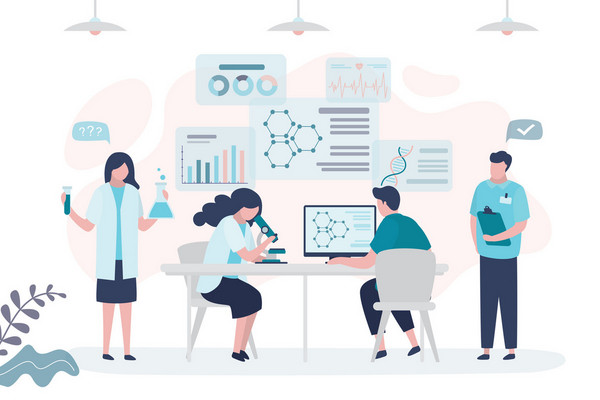Eight Approaches to Leveraging AI in Clinical Trials with the Key Industry Innovators
In the ongoing pursuit of new drugs and medical treatments, the pharmaceutical sector faces a complex task: verifying the safety and efficacy of these potential advancements. Clinical trials, long-drawn, expensive, and fraught with uncertainty, act as the proving ground for these potential solutions. To overcome these challenges, pharma R&D teams are increasingly leveraging the power of artificial intelligence (AI) in clinical trials with the goal of improving efficiency and reducing costs.
The complexity of drug development is evidenced by the high proportion of R&D endeavors that do not result in a market-ready product. Even when a potential drug reaches the clinical trial stage, the path is strewn with hurdles - a mere 12% secure approval from the U.S. Food and Drug Administration. Given these odds, pharma companies are increasingly relying on AI's capabilities to augment this percentage without compromising safety.
The convergence of AI and clinical trials holds the promise of not just expediting the drug discovery process but also enhancing the caliber and efficacy of the treatments that are developed. For instance, AI's potential to increase the accuracy of the initial selection of compounds could drastically boost the success rates of clinical trials. This potential shift holds the promise of ushering the pharmaceutical industry into a new epoch marked by heightened efficiency and innovation.
By using AI-driven algorithms for a wide range of tasks, from data entry and analysis to improved medical diagnoses, companies can reduce the time and cost associated with drug development. Here are seven ways companies are using AI in clinical trials.
1. Patient Recruitment and Screening
Clinical researchers are leveraging AI technologies to improve patient recruitment and screening processes. AI algorithms excel at analyzing vast volumes of patient data to swiftly pinpoint potential trial participants based on predefined inclusion and exclusion criteria. Furthermore, AI-powered chatbots and virtual assistants are equipped to disseminate trial-related information, respond to patient inquiries, and gather preliminary data. The result is a reduction in the time and resources devoted to manual patient screening and interviewing.
Based in the United States and established in 2010, AICure has carved out a reputation for its innovative healthcare solutions. The firm's flagship offering, AiCure Patient Connect™, comprises a suite of HIPAA and GDPR-compliant tools encapsulated within a mobile application. This app is designed to boost patient engagement, enhance the site-patient relationship, and foster a deeper understanding of both individual and population-wide disease symptomatology, with the goal of improving health and trial outcomes. The company's AiCure Data Intelligence platform provides a highly customizable data ingestion and visualization service. This feature grants sponsors access to real-time and predictive insights, thereby allowing advanced visibility into the performance of individual trials and sites.
Additionally, AICure's AI platform as a service (PaaS) enables the dynamic aggregation of disparate data sources. This allows for the correlation of previously unrelated endpoints and their translation into meaningful, actionable insights that can be deployed at scale. AICure's innovative approach to AI in clinical trials has garnered $52.8 million in funding from several investors, including Palisades Growth Capital.
2. Trial Design and Optimization
AI's ability to discern patterns in data empowers trial design and optimization by forecasting patient behaviors and drug efficacy. This enhanced insight allows researchers to craft more efficient and effective clinical trials, identifying optimal patient populations, treatment regimens, and dosages. Tools like Starmind, for instance, enable researchers to ascertain the ideal patient population for a trial by analyzing historical study data and determining which patient groups responded most favorably to specific treatments.
3. Data Collection and Analysis
A significant advantage of AI lies in its capacity to automate data collection and analysis. In pharma R&D, this could encompass data derived from electronic health records, administrative documentation, and health surveys, leading to superior data collection and management, ultimately fortifying trial results.
Saama, a company headquartered in Silicon Valley and founded in 1997, first secured venture capital in 2015. Since then, the company has accumulated more than $500 million in venture capital. This impressive fund pool includes a recent mega-round of $430 million from Carlyle and venture funds from prominent industry players like Merck, Pfizer, Amgen, McKesson, and others, effectively transitioning company control.
Saama has established itself as a frontrunner in the realm of AI-powered clinical trial analytics. It provides a comprehensive range of solutions to streamline and optimize the clinical trial process. These include accelerating clinical trials via a centralized data analytics and control center equipped with real-time data processing capabilities, automatic data quality functionalities, and expedited regulatory submission capabilities that encompass pharmacovigilance analytics and submissions.
4. Operational Efficiency in Clinical Trials
AI is enhancing the operational aspects of clinical trials, enabling vendors to remotely monitor patient health, treatment responses, and adherence to trial protocols. This approach reduces patient dropout rates, a significant concern as the phase 3 clinical study stage typically requires 1000-3000 participants, with some being assigned a placebo. The emergence of synthetic control arms – AI models that could potentially replace placebo-control groups, thus lowering the number of individuals needed for clinical trials – marks an interesting development in the field.
UK-based startup Neucruit, founded in 2019, has committed itself to redefining clinical trial efficiency, transparency, and diversity through innovative technology that facilitates closer engagement with patient communities. The company has developed a SaaS platform intended for clinical research teams. The platform enables seamless execution of digital patient recruitment tasks, unearths patient-specific insights, provides crucial support, and maintains patient engagement—all from a unified control dashboard. The platform's backbone is artificial intelligence (AI)-driven analytics and a recommender engine.
Neucruit offers its services to biopharmaceutical companies, site teams, and investigators, paving the way to refine site selection, optimize recruitment materials, and access demographic groups that have traditionally been difficult to reach. The company has secured a total of $2.4 million in seed funding over the 5 rounds, with the last round in February 2022.
5. Predictive Modeling
Researchers can harness predictive modeling to determine patient populations best suited for particular treatments, thereby refining trial designs and enhancing success rates while minimizing the risk of trial failure or patient harm. It also aids in the early detection of potential safety concerns.
Founded in 2000 and based in Cambridge, GNS is a company making strides in the intersection of AI and clinical trials. The firm utilizes its technological prowess to handle a variety of complex data, enabling it to construct "in silico patients". These are precise computer models of diseases that allow for individual drug response modulation. The primary areas of GNS's focus include oncology, immunology, CNS, and cardio-metabolic diseases.The company's technology paves the way for improved patient stratification and the identification of patients suitable for first and second-line therapies. The efficacy of GNS Healthcare's in silico patients is attested by over 50 scientific publications. The company has successfully attracted $77.3 million in investments from a consortium of investors, which includes Cinga Ventures.
6. Adverse Event Detection
AI's role in streamlining the detection of adverse events – unexpected side effects – is significant. Traditional detection methods, reliant on manual reporting, can be labor-intensive and prone to errors. AI's prowess lies in quickly and accurately identifying potential adverse events through the analysis of data from various sources, reducing the likelihood of serious incidents and improving trial outcomes.
7. Patient Selection
Given the high cost associated with enrolling patients in trials ($15,700-26,000 per patient in 2017), the ability to predict which patients will derive the most benefit or face the most risk from treatment is critical. AI companies utilize diverse data types to decrease population heterogeneity and boost clinical study power.
Owkin, a company that harnesses the power of AI, was established in 2016 and operates out of New York. The firm utilizes federated learning, a specialized machine learning approach, to enhance the efficiency of clinical trials. Owkin has developed a comprehensive catalog of cutting-edge models that facilitate the identification of new biomarkers from an array of sources, including imaging, genomics, and clinical data. One notable project saw Owkin identifying patients who exhibit severe disease progression profiles, as they could potentially respond most positively to under-development treatments. The company has successfully secured a total of $254 million from various investors, with notable contributors being Sanofi, Bpifrance, and Mubadala Capital Ventures.
8. Natural Language Processing (NLP)
Natural Language Processing (NLP), an AI subfield centered around human-computer language interaction, is a useful tool in clinical trials. It enables the extraction and analysis of unstructured data from various sources, such as electronic medical records and patient-reported outcomes. By automating data extraction and analysis, NLP can help researchers discern patterns and relationships in the data that might otherwise be overlooked or time-consuming to identify, thereby supporting patient recruitment, site selection, and clinical study design.
Fast Data Science, a company engaged in AI applications in healthcare and pharmaceuticals, among other fields, is a great example of implementation of NLP in clinical trials.For the German pharmaceutical company Boehringer Ingelheim, Fast Data Science has designed and trained a deep learning tool, harnessing the capabilities of NLP. This tool is tasked with predicting more than 50 output variables from a clinical trial protocol. This includes crucial details such as the trial duration, participant risk levels, and the nature of the treatment under investigation.
Topics: Clinical Trials


